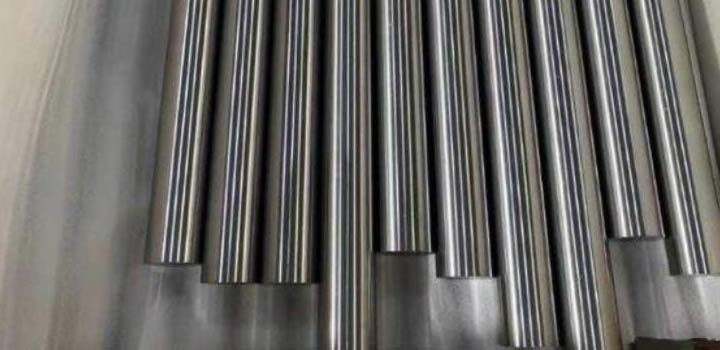SCM415 Equivalent Material

SCM415 is a low-alloy chromium-molybdenum steel that follows the JIS (Japanese Industrial Standards). It is widely used in industrial applications due to its excellent mechanical properties and durability. The following content provides detailed information about its chemical composition, mechanical properties, equivalent materials, and processing methods.
Table of contents
- SCM415 chromoly chemical composition
- SCM415 Steel Mechanical Properties
- SCM415 Equivalent Material
- Steel SCM415 Physical Properties
- SCM415 Alloy steel Annealing
- Acero SCM415 Hardening
- SCM415 Case Harden steel Tempering
- Forging Of X30WCRV93KU Grade
- JIS G4105 Grade SCM415 Thermal Properties
- SCM415 material hardness
- 15CrMo density
- DIN 1.7262 Fatigue Strength
- What is SCM415 steel?
- 15CrMo Criterion for heat treating conditions
- SCM415 Alloy Steel surface finish
SCM415 Chemical Composition
DIN 1.7262 is high quality Quenched and Tempered steel, View SCM415 Steel Mechanical Properties
DIN 1.7262 undergoes a quenching and tempering process, which significantly enhances its mechanical properties such as hardness, strength, and ductility. This makes it suitable for various engineering applications where high performance is required.
SCM415 Steel Mechanical Properties
| Typical steel Elastic modulus | Bulk modulus | Tensile strength | Yield strength |
|---|---|---|---|
| GPa | GPa | Mpa | Mpa |
| 190-210 | 140 | 655 | 415 |
SCM415 Equivalent Material
| Japan | China | France | Italy | Germany | England |
|---|---|---|---|---|---|
| JIS | GB | AFNOR | UNI | DIN,WNr | BS |
| SCM415 | 15CrMo | 15CD4.05 | X30WCRV93KU | 15CrMO | 1.7262 | 1501-620 | Cr31 |
Steel SCM415 Physical Properties
| Specific heat J/kgK |
Temperature T °C/F |
Thermal conductivity W/mK |
Modulus of elasticity kN/mm2 |
|---|---|---|---|
| 43 | 44 | 14 | 321 |
SCM415 Alloy steel Annealing
| Annealing Temperature | 800~850 ℃(1472~1562°F |
|---|
SCM415 chromoly processed through carburizing hardening treatment, Refer SCM415 Alloy steel Hardening
Carburizing hardening improves wear resistance and fatigue strength by creating a tough, high-carbon surface layer. This treatment also increases the material's ability to withstand surface pressure and ensures a longer lifespan under harsh conditions.
This makes it ideal for use in environments where the material must endure stress or extreme conditions.
Acero SCM415 Hardening
| Hardening | 840-875°C (1544-1607°F) |
|---|
SCM415 Case Harden steel Tempering
| Tempering Temperature | 500-700°C (932-1292°F) |
|---|
15CrMo steel has Yield strength of 415 MPa, Check Forging Temperature of Acero SCM415
The yield strength of 15CrMo steel is 415 MPa, making it suitable for manufacturing components like boilers, pressure vessels, and high-pressure pipes. Proper forging temperature control is crucial to achieve optimal mechanical properties and microstructure. After forging, heat treatment is applied to enhance strength, ductility, and hardness.
Forging Of X30WCRV93KU Grade
| Forging Temperature | 840-875°C (1544-1607°F) |
|---|
JIS G4105 Grade SCM415 Thermal Properties
| Thermal conductivity (@ 100°C) | 296 BTU in/hr.ft².°F | 42.6 W/mK |
|---|---|---|
| Thermal expansion co-efficient (@ 0-100°C/32-212°F) | 6.78 µin/in°F | 12.2 µm/m°C |
SCM415 material hardness
| Hardness | 28-34 HRc |
|---|
JIS G4105 Grade SCM415 have melting range of 1382 – 1529 °C, View SCM415 alloy steel density
The melting point of SCM415 is critical during manufacturing to ensure proper heat control and structural integrity at high temperatures. The density of 15CrMo ranges from 7.8 to 7.9 g/cm³, typical for low-alloy steels mainly composed of iron.
15CrMo density
| Density | 7.8 – 7.9 g/cm³ |
|---|
X30WCRV93KU Grade have high rigidity, SCM415 Case Harden steel Fatigue Strength
X30WCRV93KU exhibits high rigidity due to its molybdenum and chromium content, which enhances tensile and yield strength. This makes it ideal for pressure vessels and high-pressure applications. When SCM415 is case hardened, the surface becomes harder, improving fatigue resistance. Proper execution of this process is essential to maintain the material’s properties.
DIN 1.7262 Fatigue Strength
| Fatigue Strength | 275 MPa |
|---|
What is SCM415 steel?
SCM415 is a high-quality quenched and tempered alloy structural steel. It belongs to the category of medium carbon steels that are oil-quenched and surface-treated. This type of steel is known for its strength, toughness, and resistance to wear, making it suitable for a wide range of industrial applications.
15CrMo Criterion for heat treating conditions
- Ac: 770~835℃
- Ar: 770~700℃
- Ms: 410℃
SCM415 Alloy Steel surface finish
- Black Surface
- Grounded
- Peeled / Turned
- Polished
Visco Elastic Mastic,Viscoelastic Mastic,Viscoelastic Silicone Rubber
SICHUAN FOREVER RADIATION TECHNOLOGY CO.,LTD , https://www.fieldjointscoatings.com